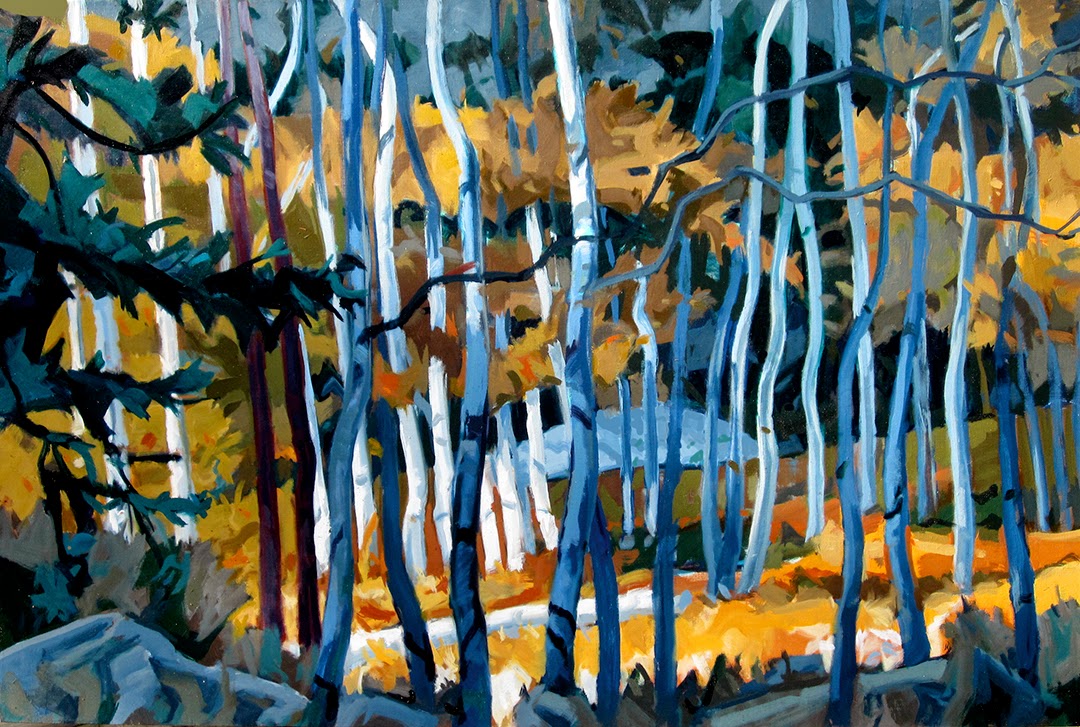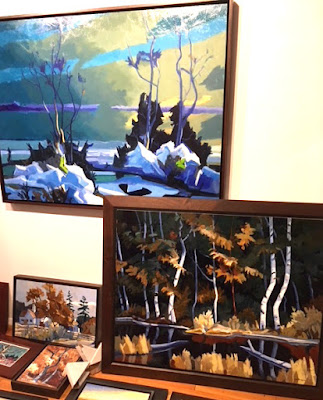How Much Have I Been Influenced by Edward Hopper and Charles Burchfield?
Philip Koch, Thicket II, oil on linen, 28 x 42", 2014
I recently had posted my oil Thicket II as the image on a Facebook events page announcing the opening reception for my show at Art Essex Gallery in Essex, CT (this Saturday, May 17, 4-7 p.m., show runs through June 7). Lee Mamunes, an artist and a knowledgeable docent at the Edward Hopper House Art Center in Nyack, NY, made a very complementary but also perceptive comment about the painting.
Lee wrote:
At first I thought of Charles Burchfield's trees, but his work is so jittery and the palette isn't his. Then I realized that your scene depicts calm and solitude more like Hopper. Wait! Have you synthesized both artists?
Charles Burchfield, September Wind and Rain,
watercolor, 22 x 44", 1949, Butler Institute of American Art
Edward Hopper, New York, New Haven & Hartford,
oil, 32 x 50", 1931, Indianapolis Museum of Art
Of course it's pretty nice to be mentioned in the same sentence with these two giants of American realist painting.
I replied to Lee :
Lee, thanks for your very perceptive comments!
Lee, thanks for your very perceptive comments!
Burchfield I feel claimed that jittery territory as something all his own- somehow he defies the odds and pulls it off as an exalted and elegant place to be. But other painters need to carefully follow their own natures, and I will always have one foot firmly planted in the Edward Hopper camp. As you say, Hopper offers us solitude and calm in his work. I find a great quiet energy in Hopper's world and it is a place I will always feel at home in.
Some years ago my paintings probably did have a more Hopper-like feel to them. But I think over time if one is really painting at their best, their inner personality insists on asserting itself. In particular, my hand prefers a more agitated paint stroke than Hopper. And especially in the last 15 years my color sense has become more adventurous, straying farther off the path of the local colors one would expect to see.
Burchfield on the other hand inhabited a remarkable world all his own. I believe anyone who consciously tried to closely imitate his handwriting and his vision is going to come up short.
The best stance for a painter is to stand back at a little distance from both these amazing painters. Learn from them, be inspired by them, but also listen one's own inner voice. That is what I have tried to do.





